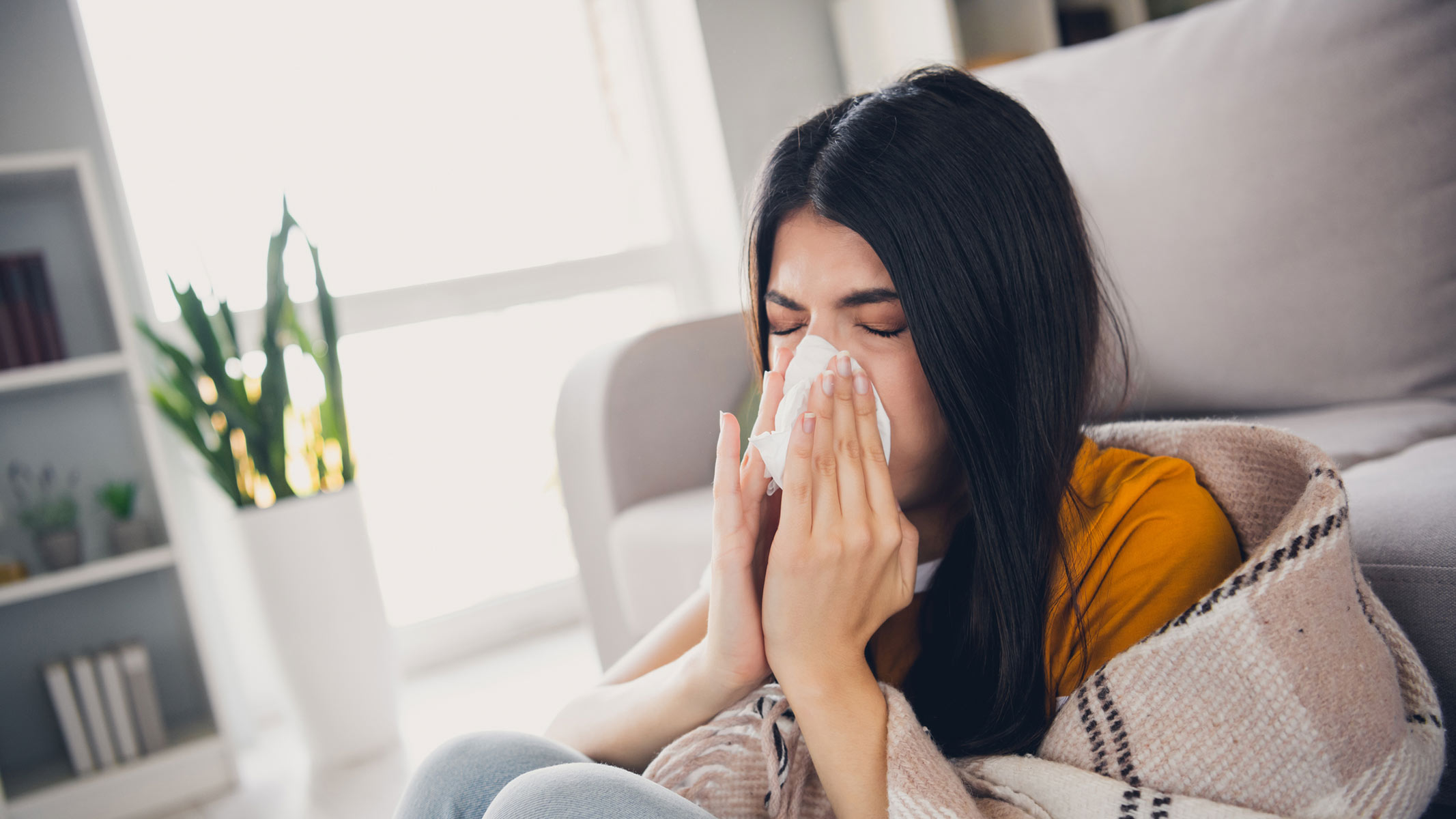Do air purifiers help with allergies?
Air purifiers can improve air quality, but do these devices help relieve allergies? And if so, how much do they help?

Get the world’s most fascinating discoveries delivered straight to your inbox.
You are now subscribed
Your newsletter sign-up was successful
Want to add more newsletters?

Delivered Daily
Daily Newsletter
Sign up for the latest discoveries, groundbreaking research and fascinating breakthroughs that impact you and the wider world direct to your inbox.

Once a week
Life's Little Mysteries
Feed your curiosity with an exclusive mystery every week, solved with science and delivered direct to your inbox before it's seen anywhere else.

Once a week
How It Works
Sign up to our free science & technology newsletter for your weekly fix of fascinating articles, quick quizzes, amazing images, and more

Delivered daily
Space.com Newsletter
Breaking space news, the latest updates on rocket launches, skywatching events and more!

Once a month
Watch This Space
Sign up to our monthly entertainment newsletter to keep up with all our coverage of the latest sci-fi and space movies, tv shows, games and books.

Once a week
Night Sky This Week
Discover this week's must-see night sky events, moon phases, and stunning astrophotos. Sign up for our skywatching newsletter and explore the universe with us!
Join the club
Get full access to premium articles, exclusive features and a growing list of member rewards.
Air purifiers clean the air in a room by drawing in the air, trapping the airborne pollutants within it, and then pushing filtered, clean air back into the space. Some of these airborne particles, such as pollen, pet dander and mold spores, are irritants that can aggravate people's allergies. These particles can make their way into our bodies as we breathe, causing runny noses, watery eyes and other adverse reactions in people who are sensitive to the allergens.
So do air purifiers help with allergies? In short, yes they can, but only to a certain extent.
Air purifiers can be effective at trapping the small particles that trigger allergies, preventing them from circulating in the air and then being inhaled. However, these devices are not a complete solution, Dr. Payel Gupta, an assistant professor at the SUNY Downstate Medical Center in New York and a national spokesperson for the American Lung Association, told Live Science by email. "Each device has its limitations, and individual responses can vary," she said.
Aneta Ivanova, a pediatric allergy nurse consultant for the Sandwell & West Birmingham Hospitals NHS Trust in Birmingham, England, agrees with that statement.
"Air purification is often recommended as a component of environmental improvement for patients with allergic respiratory disease, but there is little medical evidence to support that air purifiers help directly to significantly reduce allergies or respiratory symptoms," Ivanova said. "There is a need for larger randomized control trials to be able to scientifically prove the true effectiveness [of these devices]," she said. (Randomized controlled trials include a placebo group, for comparison, and can provide direct evidence that an intervention relieves specific symptoms.)
- Related: What causes allergies?
Historically, the studies that have been conducted have suggested that air filtration can help ease some of the symptoms of hay fever, such as sneezing, nasal congestion and watery eyes. However, but it does not appear to significantly improve people's lung function, boost their quality of life or reduce their need for allergy medications, according to a 2024 analysis published in the journal Indoor Air.
These mixed findings may partially stem from the limitations of the studies. For instance, air purifiers tend to be tested under carefully controlled conditions in laboratories, rather than in real-world scenarios. Factors such as the location of the purifier, its flow rate and its operating time will also affect how well it reduces allergy symptoms, so there may be some discrepancies between studies.
Get the world’s most fascinating discoveries delivered straight to your inbox.
Different filters within air purifiers might also alter their effectiveness. Most of the best air purifiers on the market are equipped with High-Efficiency Particulate Air (HEPA) filters, which according to the United States Environmental Protection Agency (EPA) can remove up to 99.97% of dust, pollen and airborne particles measuring 0.3 microns across from the air. These filters consist of a multilayer network of very fine fiberglass threads — thinner than strands of a human hair.
"HEPA filters are particularly effective at trapping airborne particles, including some of the common allergens," Gupta said.
For example, air purifiers equipped with HEPA filters were found to be more effective than HVAC systems (Heating, Ventilation and Air Conditioning units) at filtrating airborne particles as small as 2.5 microns, according to a 2025 study published in the Journal of Exposure Science & Environmental Epidemiology. For 12 months, scientists monitored air pollution levels in 99 school classrooms with HEPA filter air purifiers and 87 school classrooms with HVAC systems, and found that the levels of airborne particulates were on average 39.9% higher in classrooms equipped with non-HEPA air cleaners.
Ultimately, though, "while air purifiers can provide benefits for managing allergies, asthma and exposure to pollution, they are most effective when combined with good indoor air quality practices, such as regular cleaning, moisture control and proper ventilation," Gupta said. An air purifier, alone, may not do the trick.
This article is for informational purposes only and is not meant to offer medical advice.
Kerry is a freelance writer and editor, specializing in science and health-related topics. Her work has appeared in many scientific and medical magazines and websites, including Forward, Patient, NetDoctor, YourWeather, the AZO portfolio, and NS Media titles.
Kerry’s articles cover a wide range of topics including astronomy, nanotechnology, physics, medical devices, pharmaceuticals and mental health, but she has a particular interest in environmental science, cleantech and climate change.
Kerry is NCTJ trained, and has a degree Natural Sciences from the University of Bath where she studied a range of topics, including chemistry, biology, and environmental sciences.
You must confirm your public display name before commenting
Please logout and then login again, you will then be prompted to enter your display name.
 Live Science Plus
Live Science Plus











